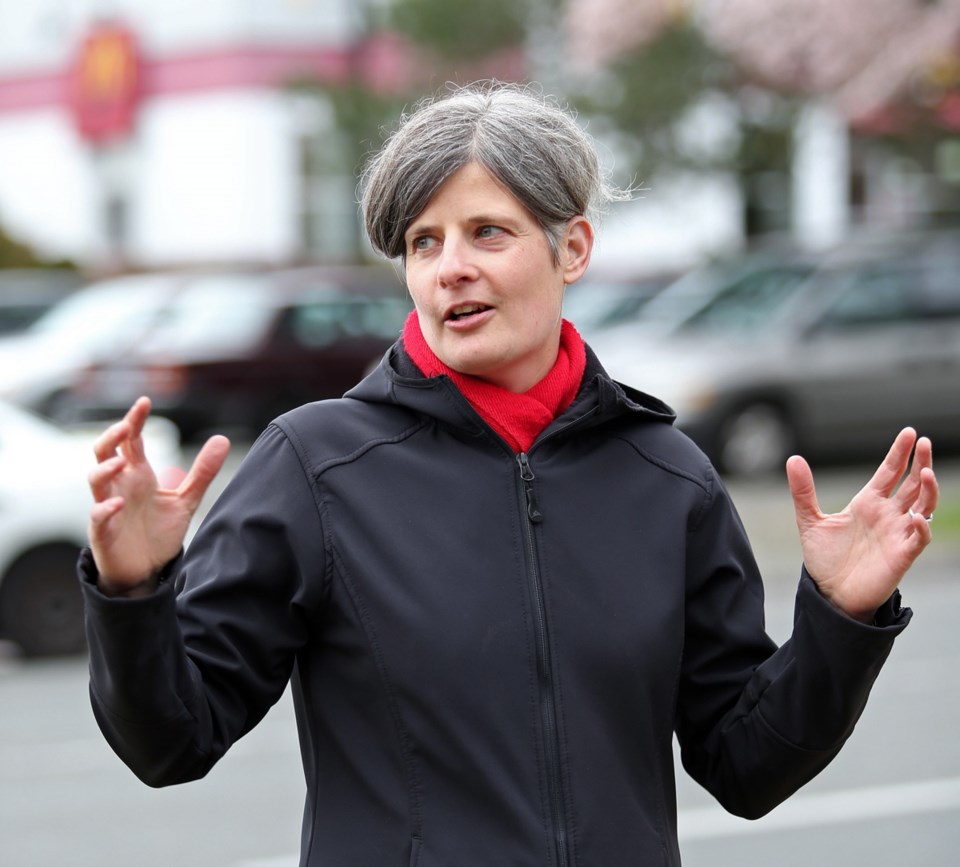Victoria councillors have approved higher development application fees despite pushback from builders’ organizations who say the additional costs will increase the cost of housing.
The approval by councillors comes even as the city netted a $500,000 surplus in revenue from development fees last year, grossing $4.046 million in fees against expenses of $3.540 million.
That fee surplus is bound to be even bigger this year. In the first quarter, the city took in $168,000 in development application fees. Had the new fee structure been in place, that take would have been $240,000.
The city’s overall operating surplus for 2016 was $4 million.
“The issue here is they’ve got burgeoning surpluses combined with an inefficient administration,” said Casey Edge, executive director of the Victoria Residential Home Builders Association.
“On the one hand, they talk about housing affordability. On the other hand, they have no problem ratcheting up fees by 100 per cent or more.”
Some of the fee increases include:
• The official community plan amendment fee increasing from to $2,500 from $1,400.
• Base rezoning fee to $2,000 from $1,400 for a single family dwelling, $3,000 for a duplex and $4,000 for a duplex (large projects will pay a $6,000 fee plus square footage fee)
• Development variance permits increase from
$500 plus $250 for each additional variance to $750 plus $250 for each additional variance
• Pre-application fees for community meetings go from $400 for occupants within 100 metres and
$800 for occupants within 200 metres to $750 and $1,250 respectively
• Public-hearing fees go to $1,800 from $1,200 and the city will introduce a new $500 fee to cover its legal costs.
The fee increases mean development application costs are going up by as much as 45 per cent for large projects, said Kathy Hogan, executive director of the Urban Development Institute.
“UDI questions why there is an expectation that the planning/approvals department operate on a break-even basis strictly on account of application fees,” Hogan said in a letter to city council. “The major benefit to the city from new [large] projects is an increase in the tax base, as well as adding to the vibrancy and economic vitality of the city.”
City staff said the fee increases are justified because there haven’t been increases in some cases for 20 years. And, they say, just because the city saw a surplus in fees last year, it hasn’t always been the case. In fact, expenses outstripped fee revenue in 2012, 2013, 2014 and 2015.
“I don’t think they need to increase as much as they are,” Hogan said . “I understand they haven’t made an increase since 1998, so they probably are due, but maybe they should do it in smaller increments.”
Jonathan Tinney, the city’s director of sustainable planning, told councillors city staff are looking at establishing a reserve fund so that revenue overages in high building years could offset shortfalls in other years.
Tinney said Victoria’s fees are conservative compared to those in other municipalities. That doesn’t wash with Edge, who said during economic downturns the city should respond by reducing costs.
Mayor Lisa Helps, who supported the increases, said the city should not have let the fees remain unchanged for 20 years.
“Our current staff are driven by common sense and it’s not common sense to not review fees for 20 years. So the timing doesn’t look good. But it’s not about looking good — sometimes, it’s about rational, common-sense decisions,” Helps said.
Helps defended the increases as part of a fee for service model even in the face of the surplus and said she didn’t think they would have much of an impact on affordability. “In 1998, the average cost of a single-family home was $265,000 and now the average cost of a single-family home is $800,000. We haven’t raised our fees, yet affordability [the overall cost of housing] has been drastically increased. So there may be some passing on [of the cost], but the market is more responsible [for that] than a relatively modest increase,” she said.



